2018 ANNUAL REPORT
Mission:
Our mission is to improve the health and welfare of our community through inclusive and responsive health services and the sustainable renewal of an inspired, competent workforce that is privileged to serve.
Vision:
Our vision is to integrate patient care delivery, workforce development and innovation to be the leading model of healthcare in America.
Values:
Do the right thing
Be privileged to serve Be an exceptional team player Strive for excellence
Be driven for great results Spread positivity
Table of Contents Message from the President / CEO 2 Graduate Medical Education 4 Patient and Family Care 10 People . . . . . . . . . . . . . . . . . . . . . . . . . . . . . . . . . . . . . . . . . . . . . . . . . . . . . 18 Community 20 Stakeholders 22 On the Horizon 24
combined effort.”
— WALT DISNEY
Without a doubt, 2018 was one of the most exciting, evolutionary and validating years our organization has ever seen. I am so proud to have spent the last 20 years of my career with The Wright Center for Community Health and its affiliated entity, The Wright Center for Graduate Medical Education.
As this year unfolded, our organizational emergence and growth presented our board, executives, employees, learners and patients with ample opportunities to reflect on and further refine our organizational brand and shared purpose, while also illuminating the undeniable value delivered to our communities through our daily, collective work.
In 2018, we made bold moves and took big steps forward. Notably, we applied to attain a Health Resources and Services Administration (HRSA) Federally Qualified Health Center Look-Alike (FQLA) designation, a culmination of many, many years of organizational learning and exceptional primary care delivery throughout Northeastern Pennsylvania. We have proudly been doing the noble work of an FQLA for years, but achieving this crucial designation in the spring of 2019 will force multiply our capacity to provide highquality, comprehensive, affordable care to the patients and families we serve, regardless of their insured status and/or ability to pay. The potential community benefit of this accomplishment is awesome and humbling.
Concurrent with our FQLA application, after years of being recognized legally as The Wright Center Medical Group and in the community as The Wright Center for Primary Care, we filed to begin operating and doing business as The Wright Center for Community Health.
This name change presented the opportunity for an overall brand refresh, a chance to better represent our comprehensive primary healthcare services and deep commitment to the communities we serve.
Refining the brand of The Wright Center for Community Health also allowed us to pay homage to our deep roots as The Wright Center for Graduate Medical Education, a now thriving, unique and nationally recognized Graduate Medical Education Safety-Net Consortium (GME-SNC). The disciplined, brand-driven process of clarifying the independent, but synergistic, governance and finance structures of our two organizations intensely illuminated the value of our inextricably linked existence and aligned intentions.
In step with refining our brand, our executive and board leadership developed an updated mission statement — to improve the health and welfare of our community through inclusive and responsive health services and the sustainable renewal of an inspired, competent workforce that is privileged to serve — to encompass the shared purpose of The Wright Center for Community Health and The Wright Center for Graduate Medical Education.
Synchronized with the organic evolution of our brand, mission and governance, we see and appreciate the similar parallels in our daily vocational activities as physician-led care delivery and educational teams. Just as we provide our patients the space to evolve, grow, make mistakes and recover, our administrative and operational teams also need the space and opportunity to do the same. Because what we’ve found, especially this year, is that a fast-paced, innovative culture of
MESSAGE FROM THE PRESIDENT / CEO
“Whatever we accomplish belongs to our entire group, a tribute to our
2
team building, calculated risk-taking, new ideas and ever-evolving use of technology, can only thrive by embracing opportunities to ‘fail forward’ in these pursuits on a multi-dimensional journey in the right direction of mission delivery. An open mind, open ears and open heart are key to recognizing and incorporating continuous learning in the spirit of developing resiliency — a core strength for patients in their most challenging times and also for us as an organization in an aggressive growth mode.
Our amazing board members, faculty, staff, residents and fellows serve and work tirelessly to deliver our mission with fierce dedication and unwavering focus every day. Our organizational efforts and growth have allowed us to invest in and support the professional development of our team members and the progressive evolution of our clinical care delivery and learning environments. All told, we created 84 new positions, and proudly nurtured and celebrated 20 career advancements.
Amazing and influential people are noticing our accomplishments. We historically welcomed several high-profile visitors to our clinical learning venues this year, including: Dr. George Sigounas, Administrator of HRSA; U.S. Reps. Matt Cartwright (PA) and Diana DeGette (CO); State Rep. Mike Carroll (PA); State Sen. John Blake (PA); and several members of Pennsylvania Gov. Tom Wolf’s administration, including Secretaries Teresa Miller, Teresa Osborne and Dr. Rachel Levine. It has been an absolute pleasure to share our good work with these prominent representatives as we continue to steward federal, state, regional and local funding intentionally to improve the health and welfare of the communities we serve, while also developing the physician and interprofessional primary healthcare workforce the nation needs.
The Wright Center for Graduate Medical Education continues to be recognized as the largest HRSAfunded Teaching Health Center Graduate Medical
Education Safety-Net Consortium in America. Notably, in October 2018, we received much-anticipated Accreditation Council for Graduate Medical Education (ACGME) accreditation of our National Family Medicine Residency (NFMR), built in partnership with A.T. Still University School of Osteopathic Medicine in Arizona (ATSU-SOMA) and high-performing FQHCs in four states. Fueled by visionary leaders at our partnering organizations and pioneering physicianfaculty and resident learners, our ACGME-accredited NFMR showcases the undeniable, positive impact that community-oriented primary care physicians can have within health systems and communities. Through the accreditation process, we were able to share our story with impressive ACGME site visitors, as well as Dr. John Combes, ACGME senior vice president of policy and external relations.
Amid all of this emergence and change, our passionate focus on our community, our learners and the patients and families we serve remains constant. We will celebrate our next bold move and big step forward this summer when we unveil our new administrative-clinicaleducational showcase at 501 South Washington Avenue in Scranton. Here, we will continue to advance primary care service lines integration and workforce development innovations. Particularly exciting will be the launch from this Scranton hub of our new Hometown Scholars Program with ATSU-SOMA and the expansion of our numerous, flourishing Northeastern Pennsylvaniabased academic partnerships for the clinical training of interprofessional healthcare workforce.
Thank you for being a substantive part of our Wright Center story. I look forward to continuing this amazing and inspiring journey with all of you.
With heartfelt gratitude,
DR. LINDA THOMAS-HEMAK CEO, THE WRIGHT CENTER FOR COMMUNITY HEALTH PRESIDENT / CEO, THE WRIGHT CENTER FOR GRADUATE MEDICAL EDUCATION
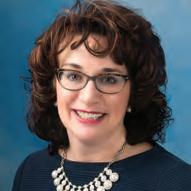
3
GRADUATE MEDICAL EDUCATION
Our comprehensive network of learning environments throughout Northeastern Pennsylvania and across the United States continues to thrive, bolstered by our flourishing affiliations with like-minded organizations and community partners. We are a well-respected pipeline for recruiting and retaining compassionate, competent physicians with relevant, 21st-century skill sets, and since our inception in 1976, we have trained more than 750 physicians.
In 2018, Dr. Mladen Jecmenica (left) was the first learner welcomed into our ACGMEaccredited Gastroenterology (GI) Fellowship, led by Program Director Dr. Pardeep Bansal (right).

Prior to the fellowship, Dr. Jecmenica had spent five years as physicianfaculty. Now, he’s performing endoscopic surgery on patients suffering from cancer and other gastrointestinal disorders. In addition, he treats patients with hepatitis C — many of them working to overcome opioid addiction — at The Wright Center for Community Health Mid Valley Practice.
Dr. Jecmenica was inspired to pursue the GI Fellowship following his late mother’s battle with colon cancer.
“For me, it’s more of a mission,” he said. “The beautiful thing about GI is that it’s a form of medicine where you really need to know your stuff, to have that academic background, but it’s also a very practical, hands-on form of medicine. You’re using the latest advances of science in the field, and that’s very satisfying.”
In the summer of 2018, we welcomed 72 physicians into our programs (left) and graduated 58 competent, compassionate doctors ready to shape the future of healthcare (right).

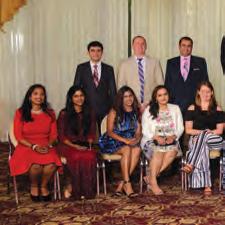
4
Community-Based Primary Care Residencies and Fellowships for Sustainable Physician Renewal
Physicians within our Internal Medicine, Family Medicine and Psychiatry residencies, as well as our Cardiology and Gastroenterology fellowships, are empowered to lead communityresponsive care innovations throughout their years in training. Within our non-profit Graduate Medical Education Safety-Net Consortium (GME-SNC), our trainees are immersed in diverse community venues where they are most needed, increasing their longterm likelihood of working in such settings after completing their training. Our model follows the national Beyond Flexner movement, focused on developing community-minded health professionals who are active agents of equitable healthcare.
JULY 2018, WE WELCOMED 72 PHYSICIANS INTO OUR REGIONAL AND NATIONAL PROGRAMS. WE CURRENTLY TRAIN:

IN
GI Fellow
Our regional residents and fellows train within Luzerne, Lackawanna, Wayne and Pike counties, and our National Family Medicine Residency (NFMR) learners train at one of four Federally Qualified Health Center (FQHC) partner sites across the United States. Our NFMR learners are supported by the educational infrastructure of A.T. Still University School of Osteopathic Medicine in Arizona within our innovative GME-SNC model.
Concurrently, in June 2018, GCSOM graduate Dr. Daniel Kazmierski entered our Internal Medicine program. “I couldn’t ask for a more supportive program,” said Dr. Kazmierski, a Clarks Summit resident. “It’s challenging, but it’s fun and stimulating. And, I’m still able to enjoy my life and my family.”
“The faculty is great,” he added. “It’s a good mix of people from both this area and outside the area. They’re focused on teaching and training us, and they’ve been in the same position we’ve been in, so they know it’s tough and they’re sympathetic to that.”
After graduating from our regional Family Medicine Residency in 2018, Dr. Devin Carey returned to the Back Mountain, the place she has always called home. She now practices at Commonwealth Health Shavertown Clinic, following in the footsteps of her father and grandfather, who were also family physicians.
“It’s an honor and privilege to serve my community. I went to grade school and high school here, and I now have teachers who say they will be my patients. This area has given me so much, and I’m ready to give back.”
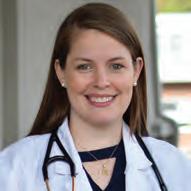
5
1
7
8
33
47
In June, 54 residents and four fellows completed their training with us. Many confirmed employment in community-based health systems, committing to practice in underserved areas across the country. Meanwhile, six NFMR learners confirmed employment within the FQHC system where they trained. Of the 43 physicians who completed their training in Northeastern Pennsylvania, 13 confirmed employment within Pennsylvania. 107
Cardiology Fellows
Psychiatry Residents
Family Medicine Residents (Regional)
Family Medicine Residents (National)
Internal Medicine Residents
We continue to work closely with Geisinger Commonwealth School of Medicine (GCSOM), and together we recruit, educate and retain community-minded, compassionate physicians in Northeastern Pennsylvania. In June 2018, three GCSOM graduates, Drs. Max Tolan, Soroosh Hashemi and Daniel Shust, completed their Family Medicine residencies with us. Both Drs. Tolan and Shust are currently practicing medicine in Northeastern Pennsylvania.
A Value-Driven Framework to Cultivate Physician Leaders and Address America’s Workforce Shortages



Aconsortium is an association of two or more individuals, companies, organizations or governments pooling resources and participating in a common activity in order to establish an enterprise beyond the resources of any one member alone.

Our GME-SNC model does just that.
By utilizing three federal funding streams — Centers for Medicare & Medicaid Services, the U.S. Department of Veterans Affairs, and the Health Resources and Services Administration (HRSA) — as well as multi-payer clinical revenues generated through our regional Wright Center for Community Health practices, we nurture enriched community networks and
enable diverse, community-based learning environments for residents/fellows.



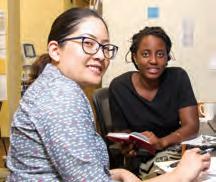
Our unique GME sponsoring institution framework demonstrates the power of collaboration, shared learning, accountability and standardized streamlined processes to impact public health and prepare the competent, compassionate healthcare workforce America needs.
We foster affiliations with hospital partners in Northeastern Pennsylvania — Commonwealth Health System, the U.S. Department of Veterans Affairs and Geisinger — and our GME-SNC structure enables residencies within four Federally Qualified Health Center (FQHC) partner sites across the country.
GRADUATE MEDICAL EDUCATION 6
Graduate Medical Education Safety-Net Consortium (GME-SNC) Model
Our
OUR PIONEERING NATIONAL FAMILY MEDICINE RESIDENCY

As a centrally controlled, sponsoring-institution GMESNC, The Wright Center for Graduate Medical Education’s notable success has been demonstrated through our National Family Medicine Residency (NFMR), designed to address foundational issues of access and affordability by refueling healthcare workforce pipelines in four communities across the country.
In 2013, the first 20 learners entered the NFMR program, initially accredited by the American Osteopathic Association (AOA), citing deep ties to and passion to serve underserved communities and minority populations. Our pioneering NFMR faculty, residents and FQHC partners were trailblazers for GME redesign, all embodying the highest respect for compassionate patient care, high academic expectations and the noble profession of medicine.
Our NFMR learners train at the following FQHC partner sites across the country: TUCSON, ARIZONA AUBURN, WASHINGTON NEW RICHMOND, OHIO WASHINGTON, DC
INITIAL ACGME ACCREDITATION ACHIEVED WITHIN OUR NFMR
In October 2018, the NFMR became a part of the nationally significant journey towards a Single Accreditation System, achieving initial ACGME accreditation and stretching traditional boundaries and historical geographical constraints of the process.
“By 2020, we had to acquire single accreditation, and everyone knew it was coming,” said Dr. Meaghan Ruddy, director of medical education for the NFMR. “It was a pretty heavy lift for everyone involved. The first time we put in an application, in 2016, we didn’t get it. So, we submitted corrections and we were put in pre-accreditation for a while.”
— DR. MEAGHAN RUDDY VICE PRESIDENT OF ACADEMIC AFFAIRS AND NFMR
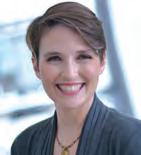 OF MEDICAL EDUCATION
OF MEDICAL EDUCATION
Not surprisingly, the buildup to the May 2018 ACGME site visit was tense. The multiday affair took place at two partner sites — Tucson first, then New Richmond. “We had prepared for a ‘no’ on the initial accreditation, because what we do is so out of the box. But everything aligned — they collected a lot of information from us, and we had everything ready,” said Dr. Ruddy, noting the team received word of the initial accreditation status on, of all days, a Saturday. “And, because we are the only national consortium program, they are coming back for a visit in June or July 2019. We have less than a year, but we’re ready. It’s been super inspirational to watch this team work really hard to make this happen.”
And while the NFMR’s ACGME accreditation is highly significant, perhaps the continued recruitment and retention of this program’s graduates, year after year, is even more so. Notably, to date, more than half of our 54 NFMR graduates have committed to practice within underserved settings upon completion of their residency training, with 35% choosing to set their professional roots within the FQHC where they trained. Full classes of incoming residents continue to choose our NFMR program each year.
7
“I find the mission inspiring, and I find the staff so dedicated to the mission.”
DIRECTOR
“I am so proud of what the NFMR has become. Working with the residents is just infectious. I love them.”
EILEEN HOWELLS | NFMR COORDINATOR
NOTEWORTHY
In 2018, two full-time, board-certified inpatient physicians joined our faculty, and I-PASS®, a cloud-based package of interventions to reduce communication failures during patient handoffs and transitions of care, was integrated throughout all inpatient clinical learning sites to standardize protocol.
Did you know that more than 120 physicians volunteer as faculty members throughout our residency and fellowship programs? Volunteer faculty are a vital part of our residents’ and fellows’ learning experience, freely sharing their expertise and helping to shape our residents and fellows into the best physicians they can be.
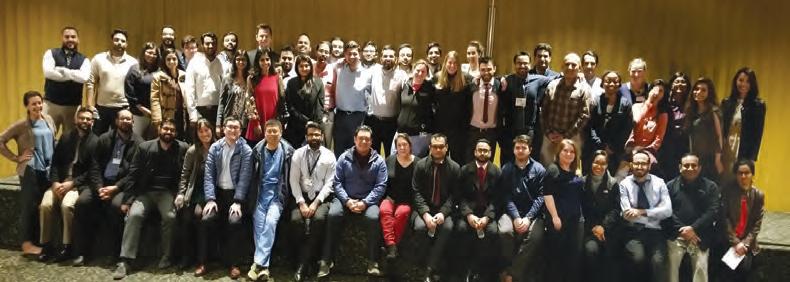
120 + 97.3% volunteermembersfaculty
resident board pass rate
(ALL PROGRAMS)
This year, our Population Management curriculum was integrated into ambulatory rotations. Our interactive poverty simulations continue to be a unique and popular experience within this curriculum. Learners step into the shoes of the patients they serve to better understand socioeconomic determinants of health and hone the skills to respond to today’s diverse populations. In November, almost 100 learners (below) participated in the poverty simulation.
RECOGNIZING AND VALIDATING A SIGNIFICANT FEDERAL INVESTMENT
HRSA’s Teaching Health Center Graduate Medical Education (THCGME) initiative delivers the vital funding to make our NFMR possible, as well as the notable expansion within our regional Internal Medicine and Family Medicine residencies. HRSA reaffirmed its investment in the THCGME program in the 2018-19 Fiscal Year, investing an additional $17.26 million into The Wright Center for Graduate Medical Education. HRSA has granted $80.8 million in funding to our organization since the initial award in 2011.
In September 2018, Dr. George Sigounas, HRSA administrator (left, with regional Family Medicine resident Dr. Allyson Matthys), visited The Wright Center for Community Health Mid Valley to learn more about our residency programs, meet our learners and leadership, explore our unique GME-SNC training model and tour our clinical learning environments in which HRSA has so significantly invested.
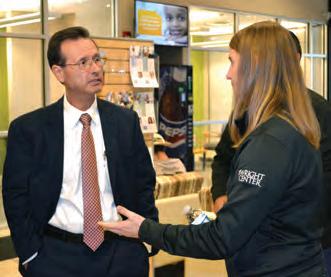
“The Wright Center for Graduate Medical Education’s mission... is something the Health Resources and Services Administration is proud to support,” said Dr. Sigounas. “The development of culturally competent clinicians and the integration of mental health, dental and other services show a strong commitment to the growth and welfare of their community.”
Our team intends to further validate HRSA’s investments and assess the impacts, both tangible and intangible, of the THCGME initiative. Our leadership, key executives and staff from our FQHC NFMR partners, and accounting consultant Baker Tilly, embarked on a Multi-Dimensional Evaluation Project (MDEP) to take a deep dive into our NFMR partnering communities in 2018. Our team plans to deliver the results of this evaluation to our partners and HRSA administrators in spring 2019.
Stakeholders in the national THCGME space, including the American Association of Teaching Health Centers (AATHC), continue to advocate for appropriate levels of federal investment in primary care GME, and plans are in place to expand learning opportunities within our GME-SNC as funding becomes available.
GRADUATE MEDICAL EDUCATION 8
Scholarly Work and Events
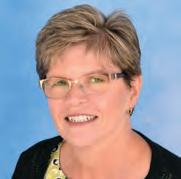
In 2018, our faculty, residents and staff were chosen to present their scholarly work at a number of local, regional, state and national events. Some of the notable venues for 2018 included the National Association of Addiction Professionals, Pennsylvania Rheumatology Society and Pennsylvania Gastroenterology Society meetings, American Medical Association Research Symposium, American College of Cardiology National Scientific Session, National Endocrine Society annual meeting and the American Psychiatry Association meeting. Meanwhile, we invested substantially in our research infrastructure and human research protections with the addition of both staff and technology. Among the new members joining the organization in 2018 were Kathy Uhranowsky, Director of Clinical Research, and Institutional Review Board (IRB) Administrator (right), and Dr. Paula Roe-Prior, Scholarly Activity Consultant.
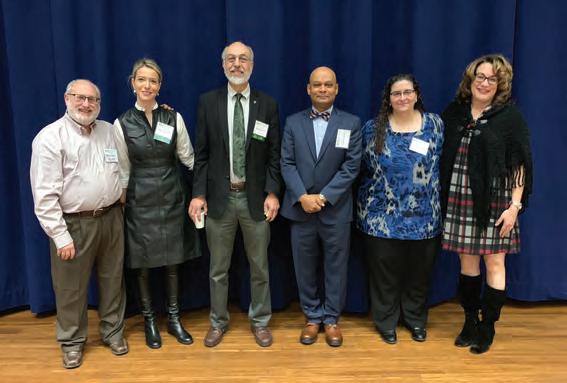
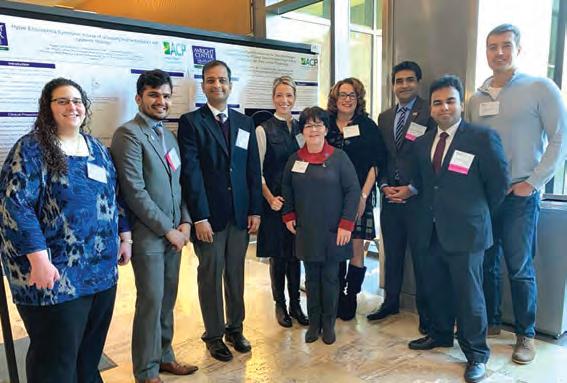
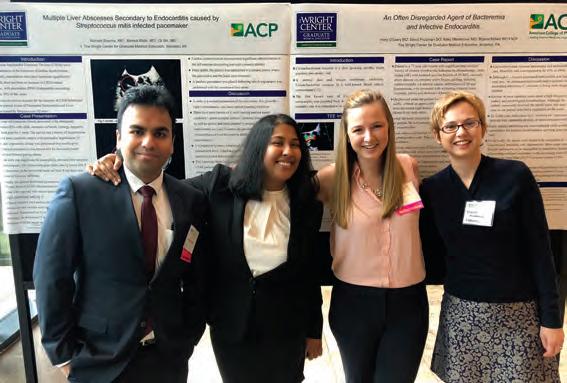
The research staff offered didactic sessions on research-related topics, as well as individual assistance with project development, statistical analysis and scientific writing. Technological enhancements included: IRBNet, an all-electronic, web-based IRB management platform, to streamline the IRB submission process and allow researchers to access their work remotely; and Protocol Builder, an interactive research protocol-writing tool for project development and statistical analysis.
The Wright Center for Graduate Medical Education hosted the American College of Physicians’ (ACP) Eastern Region Poster/Doctor’s Dilemma® Competition in November. Drs. Bojana Milekic, Mark Madhok and Susan Baroody served as program chair, chair of the Doctor’s Dilemma games and chair of abstract competition, respectively. The event was held at Geisinger Commonwealth School of Medicine, and four posters were presented by our residents.
9
PATIENT AND FAMILY CARE
All Wright Center for Community Health practices follow the Patient-Centered Medical Home (PCMH) model, a delivery structure in which treatment is coordinated through a primary care physician to ensure necessary care is received when and where a patient needs it.
“I was born and raised here, and I find that it’s very helpful when I can understand where my patients are coming from. There is a lot more to family medicine than just science.”
DR. JOSEPH ANISTRANSKI FAMILY MEDICINE PHYSICIAN-FACULTY
Among its services, our newest practice, Old River Road, now offers medication-assisted treatment (MAT) and case management.
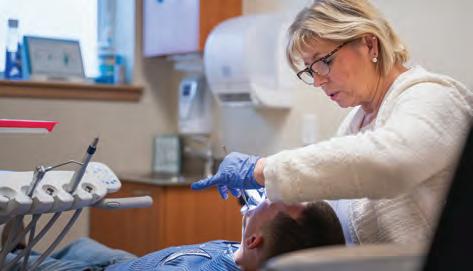
Lead case manager Ed Walsh (right) serves as a resource for individuals struggling with addiction during their most challenging and inspiring moments.
“I like being part of a bigger picture; The Wright Center for Community Health has been a pinnacle of healthcare for over forty years and continues to grow in both size and commitment to an integrated patient-centered care model.”
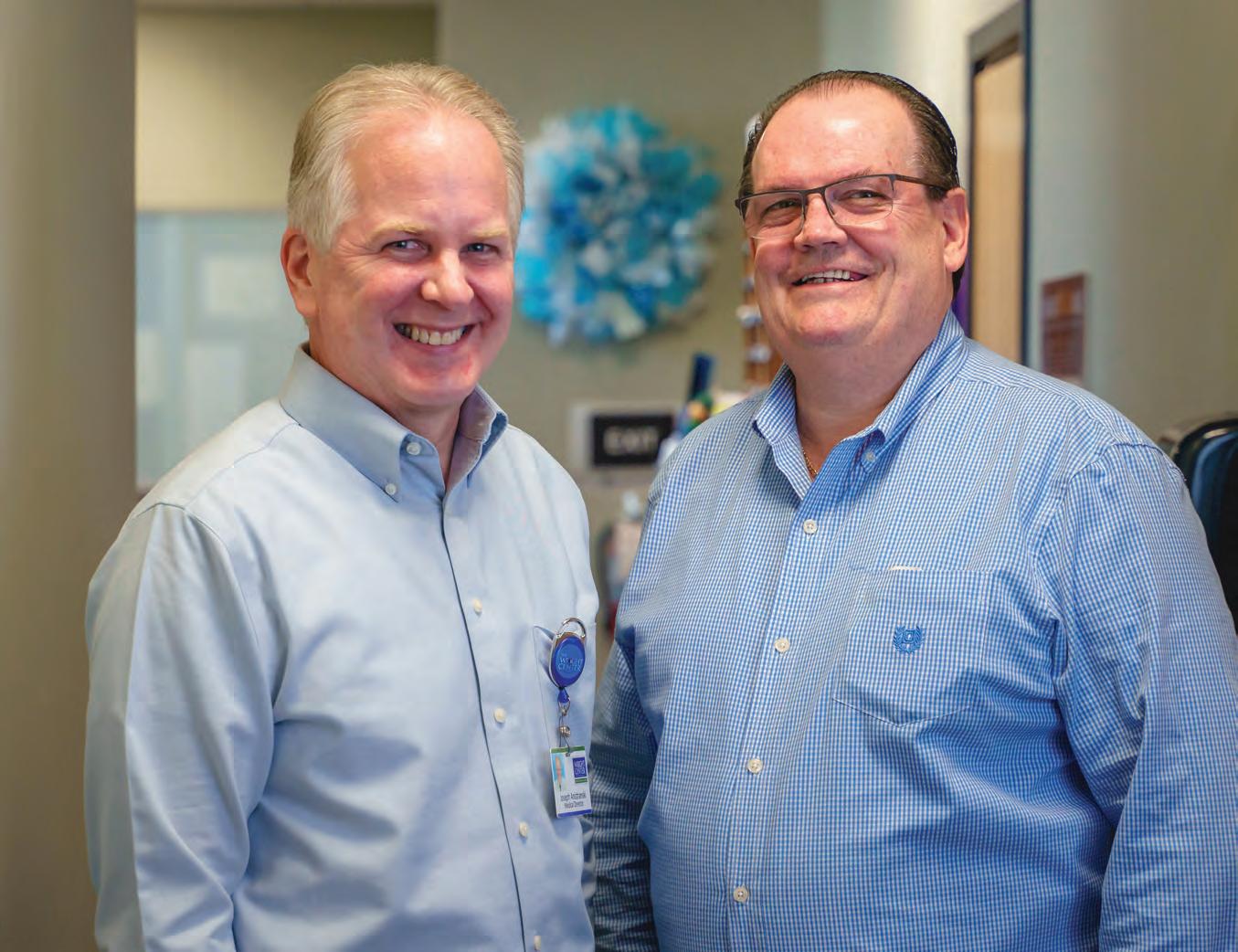
10
DR. LAURIE SARGENT joined our oral health team in 2018, bringing two decades of experience in cosmetic and community dentistry.
Our Old River Road Practice, colocated with Harrold’s Pharmacy and overseen by longtime family medicine physician Dr. Joseph Anistranski, was previously affiliated with Commonwealth Health System’s InterMountain Medical Group and became a Wright Center for Community Health clinical learning environment in February 2018. More than 3,000 patient visits were provided at this location this year, and 300 individuals served were first-time patients.
Dr. Anistranski is particularly impressed with the organization’s mission of supplying Northeastern Pennsylvania with more family medicine doctors like himself and he is an advocate of the safety-net provider model. “I like that now the conversation doesn’t end with, ‘What insurance do you have?’” he said.
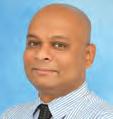
Just a few blocks away, at our South Franklin Street location, established in January 2018, we are forging close collaboration with the Children’s Service Center, as well as with the Wilkes-Barre City Health Department, Domestic Violence Service Center, Victims Resource Center, United Way of Wyoming Valley and the Wilkes-Barre Area School District nursing staff. Also, the clinic has partnered with the federally funded Vaccines for Children program to provide uninsured and underinsured kids with no-cost vaccinations.
The practice is serving a vital need in the Luzerne County community; many patients there had previously sought treatment at our Lackawanna County facilities. As many as two to five Hispanic families visit the practice each day, said Rebecca Kenderes, a bilingual physician assistant at The Wright Center for Community Health South Franklin Street Practice.
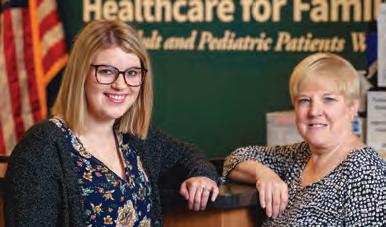
“Here, we see kids, grandparents and everyone in between,” Kenderes said. “The great thing about having a primary care provider — especially one who can see the whole family — is the idea of building a lifelong foundation of preventative care and engagement in their health, together.”
Meanwhile, we also established a partnership with the Care and Concern Free Clinic at St. John the Evangelist Church in Pittston. Established in 2007 and located in the former Seton Catholic High School, the clinic provides free medical care to low-income local residents who lack health insurance on the second Wednesday of each month. The clinic is staffed by a committed, revolving team of volunteers, among them several of our physician-faculty and resident physicians. The group includes Dr. Mark Madhok, who joined The Wright Center for Graduate Medical Education’ as Internal Medicine faculty in 2018. Often, Dr. Madhok sees more than 15 to 20 patients per clinic visit. A number of those patients are immigrants, he said.
“You see people you don’t often see in a clinic care setting,” Dr. Madhok said. “Many of them have gone years without proper healthcare. Often, their records aren’t even computerized. A lot of them have very bad diabetes and other serious illnesses.”
It’s challenging yet extraordinarily gratifying work, said Dr. Madhok, a native of Bangalore, India, who in addition to his medical degree has a doctorate in surgical oncology. “The clinic reminds me a lot of the bare-bones medicine we would practice in medical school in India,” he said. “We would go to these remote villages and treat everything from serious illnesses to fractures to snake bites. It’s very similar to street medicine. I really enjoy it.”
11
We rounded out The Wright Center for Community Health clinical learning environments in Jermyn, Clarks
Summit and Scranton by integrating two primary care practices in South Wilkes-Barre in early 2018.
“They do phenomenal work there, and our residents love it.”
— DR. MARK MADHOK INTERNAL MEDICINE PHYSICIAN-FACULTY
Mary Georgetti (right), front administrative manager at our South Franklin Street Practice, said she is “so glad we’re here as a community health clinic now,” noting the addition of Kenderes (left) is “such a positive.”
Promoting Access to Comprehensive, Affordable, Responsive Health Services
A notable percentage of The Wright Center for Community Health’s patients lack insurance, are underinsured or qualify for Medical Assistance. As a safety-net provider of healthcare, the organization will never turn away a patient due to lack of insurance or inability to pay.
In October 2018, The Wright Center for Community Health applied to attain Federally Qualified Health Center LookAlike (FQLA) status. This designation will enable our team to continue to provide high-quality, accessible healthcare to all individuals in the service area, as well as receive federal support and negotiated Medicare reimbursement rates to do so. Through the process of composing the application, the organization was
re-branded from The Wright Center Medical Group, PC/The Wright Center for Primary Care to The Wright Center for Community Health. This name change more closely describes our community-focused work as providers of comprehensive safety-net services at our various patient care locations in Northeastern Pennsylvania. If granted, organizational FQLA status will be announced in spring 2019.
For years, Northeastern Pennsylvania has had a sizable population of older residents, and its numbers are skyrocketing as baby boomers hit senior citizen status. The Wright Center for Community Health is meeting the needs of this key demographic in many ways.
Take, for instance, Dr. Enrique “Eric” Samonte, who, in 2018, joined our staff as an associate program director within our regional Family Medicine Residency. In addition to his teaching duties, Dr. Samonte has made geriatric care a focal point of his work.
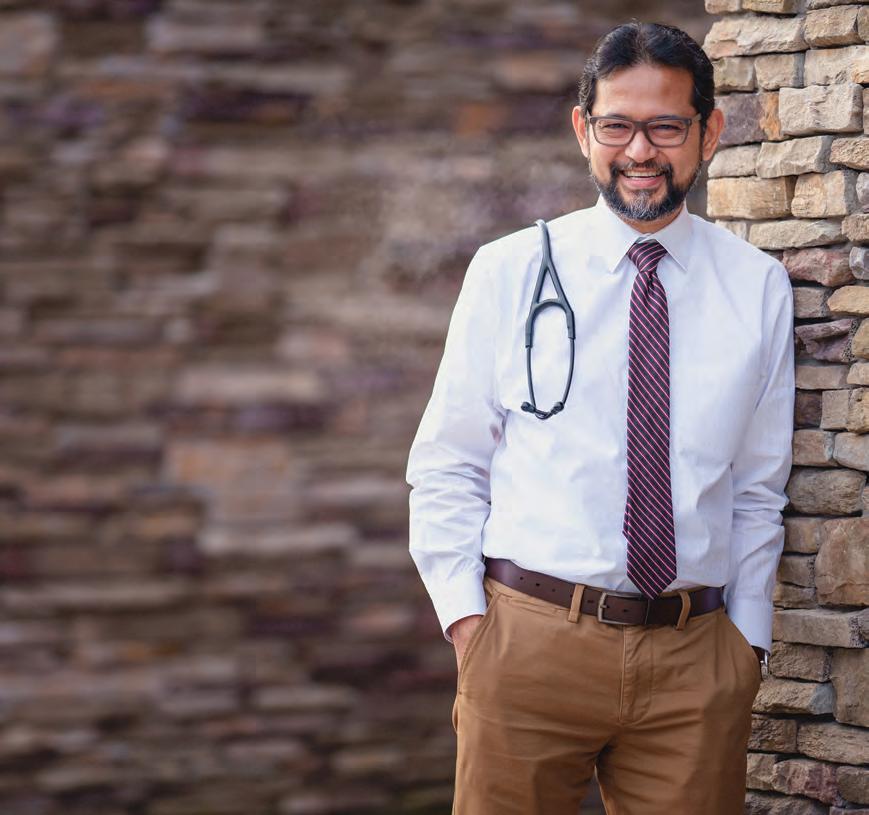
Dr. Samonte and a growing number of Wright Center staffers are making home health a part of their job descriptions.
“Yes, I make house calls, like something out of the 1950s,” Dr. Samonte said with a chuckle.
DR. ENRIQUE “ERIC” SAMONTE ASSOCIATE PROGRAM DIRECTOR, REGIONAL FAMILY MEDICINE RESIDENCY
Home visits are not only extremely convenient for elderly patients, but they also allow our providers to get an up-close look at someone’s living conditions.
“It’s very enlightening to see how people exist in their own surroundings,” he said.
“It could even be as simple as helping them put their pills in the right boxes. It’s a way for us to make an even bigger impact on the community.”
PATIENT AND FAMILY CARE 12
“I love taking care of the whole spectrum of patients, but it’s the elderly I connect with more than anyone else. It’s just a different dynamic. I love their wisdom and how their experiences have molded them into who they are.”
When trips to the Mid Valley Practice became too much for 93-year-old Ernie Manning, his longtime physician, Dr. Linda Thomas-Hemak, began making visits to the World War II veteran’s home in Dickson City.
“She takes good care of me; she has a nice way about her,” Manning said. “She’s different than other doctors. She always gives me a hug and a little kiss.”
Meanwhile, Sister Maureen Marion (right) regularly visits Manning in her role as a life enhancement spiritual aide for The Wright Center for Community Health. Overall, she visits about 25 patients ages 65 and older who either live alone, with family or in assisted living.
“We talk about family, life experiences and whatever else comes up,” she says. “I compare this effort to lighting a candle within a dark church, and you never know what kind of a difference you will be making in someone’s life.”
Also providing care for patients when and where they need it, Dr. Laurie Sargent, dentist and Oral Health Program Director, added, “Our office is state-of-the-art, and the dental team is amazing. They are so conscientious and caring and deeply committed to community health,” Dr. Sargent said. Longtime regional dental providers Dr. Darleen Oleski and Dr. Joseph Ercolani care for patients at the clinic a few times a week to supplement her day-to-day work.
One of the many feel-good stories springing from the oral health service line this year includes Marilyn Walsh (left), a longtime patient of Dr. Linda Thomas-Hemak. In July 2018, Walsh had a cancerous mass removed from her jaw at Philadelphia’s Thomas Jefferson University Hospital. Though the surgeries were a success, they resulted in Walsh losing numerous teeth, leading her to joke to Dr. Thomas-Hemak, “All I want for Christmas is my teeth back.” In response, grant funding was earmarked for Walsh to receive new dentures. Dr. Ercolani provided Walsh with her fitting, and found the whole process so inspiring, that it solidified his decision to transition into full-time employment within our oral health service line in 2019.
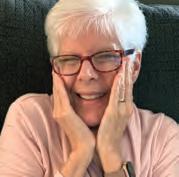
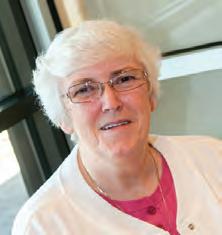
“I am so thankful for what they were able to do for me,” Walsh said. “Dr. Thomas-Hemak has been my primary care physician for 15 years and has been wonderful. You do not get this kind of treatment from most doctors. She calls me at home all the time; she is amazing.”
We continue to explore partnerships with like-minded community partners that can offer accessible services to our patients.
During the fall, Andrew Brown’s Pharmacy (above) opened for business within our Mid Valley Practice, enabling patients to see their physician and take just a short walk down the hall to have their prescriptions filled in minutes.

As medications continue to be a vital component of patient care, our Clinical Inventory Management System (CIMS) — an integrated, end-to-end medication solution — was implemented in our Mid Valley Practice (below) to promote more effective ordering and tracking to ensure the organization is meeting the highest standards of patient safety and quality. This pilot project has already generated savings within the clinical environment, and the CIMS system will be integrated into additional clinics throughout 2019.
All locations have also implemented onsite Cepheid Molecular PCR labs for rapid testing for influenza A and B, flu/RSV and group A strep; this provides patients and their families with rapid results — often within 30 minutes after testing — instead of the traditional 48-hour process of sending results to an outside lab.
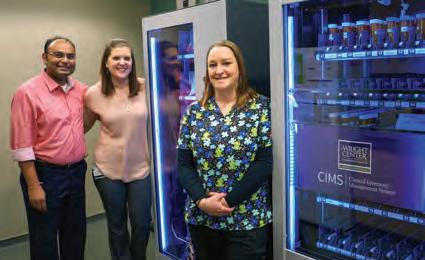
patients served* 19,799 83,265 patient visits* *Our physicians care for patients within The Wright Center for Community Health practices, as well as in hospitals, schools, nursing homes, pop-up clinics and other community venues.
Pursuit of Primary Care / Behavioral Health Integration
Our physicians and extenders take into account all aspects of a patient’s health — including possible mental/behavioral healthcare needs or addiction — to provide comprehensive, patient-centered care.
As one of Pennsylvania’s 46 Opioid Use Disorder Centers of Excellence (OUD-COEs) designated in late 2016 and refunded again in 2018, we have expanded access to medicationassisted treatment (MAT) and established necessary social supports for individuals beginning or living life in recovery. Providers were encouraged to attain their MAT certification, and we grew our team of case managers, certified recovery specialists, social workers and administrative professionals to provide holistic support. In the spring of 2018, the behavioral health wing within the Mid Valley Practice was expanded to promote integrated primary care / behavioral health services and establish dedicated, appropriate space for our growing team and patient base.
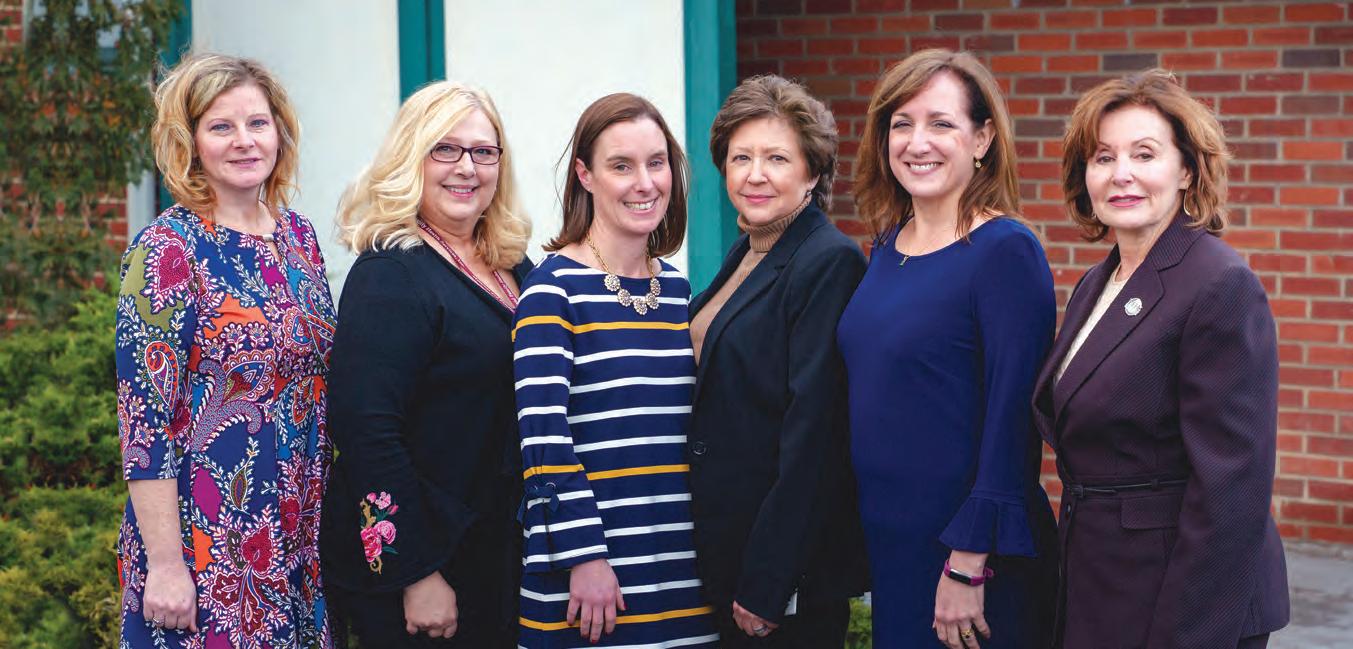
In July 2018, we were awarded a significant grant to implement the Pennsylvania Coordinated Medication-Assisted Treatment (PacMAT) program, which is designed to increase MAT access throughout the state. Through this initiative, 10 existing primary care practices in Lackawanna, Luzerne, Wyoming, Wayne and Susquehanna counties will engage and collaborate, using our established workflow and model, to care for individuals with opioid use disorder (OUD). We will serve as one of the two “hubs” of the proposed network in Northeastern Pennsylvania,
sharing best practices to partnering “spokes” to address unmet treatment needs through prevention, treatment and recovery initiatives. Meanwhile, we received a grant from the U.S. Department of Agriculture to launch our telemedicine initiative, which will provide increased access to patients residing in rural areas or encountering transportation challenges.
In late 2018, we became a community partner in the Healthy Maternal Opiate Medical Support (Healthy MOMS) pregnancy-recovery initiative, formed to bring together regional players in the healthcare, legal and social services sectors to care for prenatal and postnatal women with OUD and, ultimately, reduce their babies’ risk of neonatal abstinence syndrome. The Wright Center for Community Health and Maternal and Family Health Services received financial resources from AllOne Foundation to support the collaborative, which also includes the Lackawanna/ Susquehanna Office of Drug and Alcohol Programs, Lackawanna County Office of Youth and Family Services, Susquehanna County Children and Youth Services, Moses Taylor Hospital, Outreach Center for Community Resources, Geisinger, and Scranton Primary Health Care Center, among many other partners.
PATIENT AND FAMILY CARE 14
From left, Yurii Lynn Harden, Licensed Clinical Social Worker, Maternal and Family Health Services; Cindy Kennedy, Director COC and DSS Operations, Maternal and Family Health Services; Barbara Durkin, Director, Lackawanna/Susquehanna Office of Drug and Alcohol Programs; Maria Kolcharno, Director of Addiction Services, The Wright Center for Community Health; Dr. Maria Montoro-Edwards, Vice President of Strategic Initiatives, The Wright Center for Community Health; Bette Cox Saxton, President and CEO, Maternal and Family Health Services
Jason McConnell has seen the depths of addiction firsthand, which makes him precisely the right person to help others on the road to recovery.
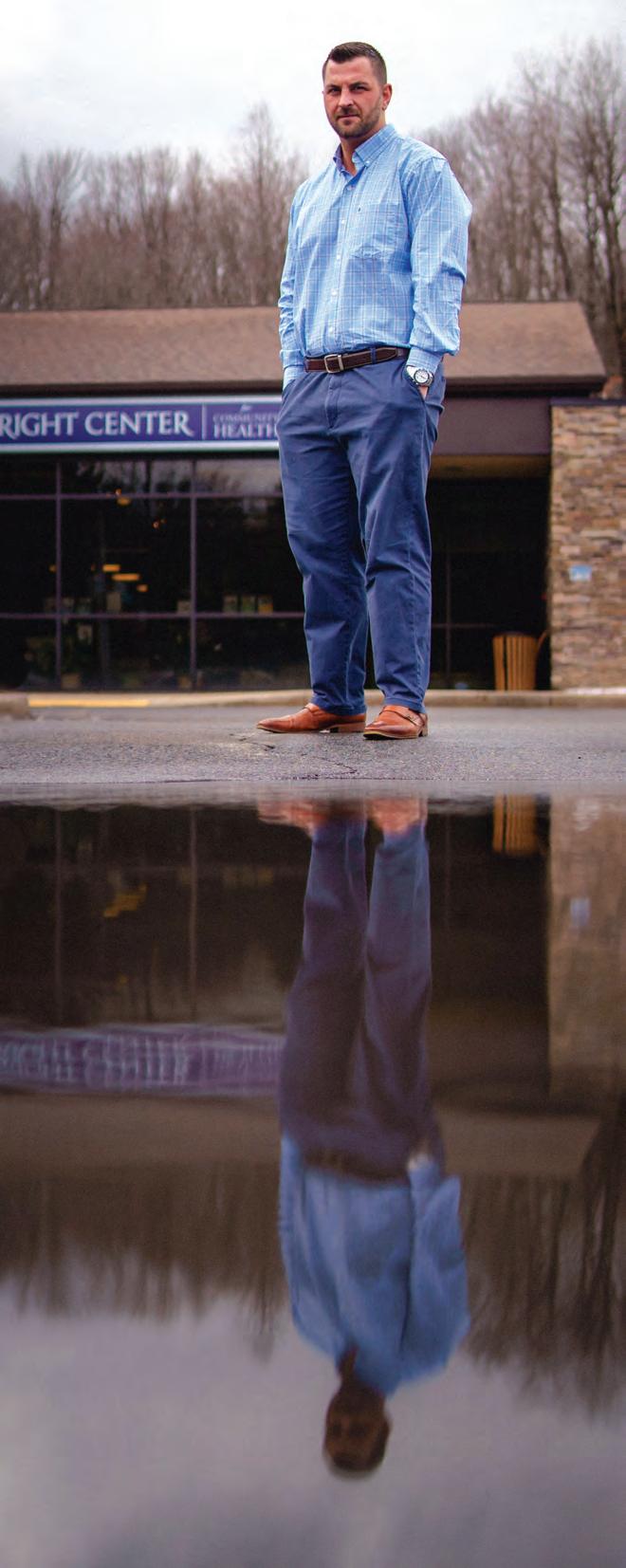
In 2018, McConnell joined our Opioid Use Disorder Center of Excellence program as a Certified Recovery Specialist (CRS) — i.e., an individual in active recovery trained to assist others seeking treatment. Based at the Mid Valley Practice, he works one on one with about 30 male patients receiving care within the team-based COE program.
Of course, he’s a sounding board and guide for his patients. But he also assists them in more practical matters, like writing resumes and finding transportation for appointments and support group meetings. He strives to “meet patients where they are” — emotionally and literally.
“I’ll meet with them at home, or for coffee at Dunkin’. And they can reach out to me anytime with their problems,” McConnell said. “We talk about the things going on in their life. Recovery is like a pizza, in that it has many different pieces. Even the small victories, like finding employment, are so rewarding but only if you put in the work.”
McConnell’s path to becoming a CRS started with an interaction he had with Dr. Linda Thomas-Hemak, his longtime family physician.
“She knew parts of my story just from me coming here and thought that I’d be a great candidate for CRS training,” McConnell said. “It fit right in with this idea and vision that I wanted to help people after I had the opportunity to get clean.”
McConnell is now three years into his recovery, which came after spending the bulk of his teens and early 20s abusing alcohol and pills. “I always felt like I needed that extra boost for everything from talking to people to doing daily tasks like cleaning,” he said.
McConnell vividly remembers his moment of clarity. It came on “a gorgeous May afternoon” following a night of hard partying that resulted in a DUI arrest.
“I just felt so empty inside,” he said. “I thought, ’I have a problem, and I need some help.’”
While in rehab at Pocono Mountain Recovery Center, McConnell worked with counselors whose personal stories showed him a life of sobriety was possible. Now, the budding entrepreneur — he owns both a cellphone repair service and a deejay business — is playing the exact same role for his patients.
The stories of recovery, resilience and hope validate the impact of the COE designation. In 2018, PA’s Department of Health and Human Services re-funded The Wright Center for Community Health to continue this life-altering work.
“I feel so blessed that he is alive today, and that he can use his story to help others who are in the same situation he was. He lived through it, and not only survived addiction, but he is now thriving and dedicating his life to serving others. We could not be more proud of the man that he has become.”
DEANNA McCONNELL JASON’S MOM
White Infectious Disease Services
Comprehensive healthcare services, prevention education and support
Providing Unique Opportunities for Shared Learning and Leadership
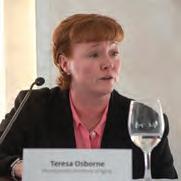
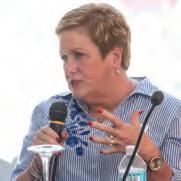
455 88.5% unique patients viral load suppressed
(>80% CONSIDERED VERY GOOD)
Through proper treatment, HIV can become undetectable and the likelihood of transmission can be decreased. Viral load was suppressed in 88.5 percent of our patients in 2018, and the number of patients enrolled in case management remained between 92 and 98 percent.
We bolstered efforts to offer pre-exposure prophylaxis (PrEP) training to our providers and make PrEP available to patients across all clinical locations to prevent the spread of HIV in our community.
Also, we continued to screen our HIVpositive clients for the hepatitis C virus (HCV) and enrolled four patients into the HCV treatment program in 2018. A total of 37 dually-infected individuals have been treated for HCV since the program’s inception.
In addition to its THCGME funding, HRSA awarded a multi-year Primary Care Training and Enhancement (PCTE) grant in June 2016. This $1.2 million award (to be used over five years) integrates team-based, patient-centered, primary care health professions education to improve access to quality healthcare for underserved populations. In April 2018, a portion of this grant was used to develop interprofessional workforce skill sets in physician assistants, focusing on the use of medication-assisted treatment to combat the nationwide opioid epidemic. We hosted a no-cost, two-day Leadership in MAT Summit for physician assistants. Attendees learned about ethics, advocacy, leadership and best practices for treating opioid addiction.
In early May, our team convened a community roundtable discussion titled “Identifying Inter-Generational Implications and Discovering Cross-Generational Solutions to Our Opioid Epidemic.” The panel, moderated by Dr. Linda ThomasHemak, included several state officials, including Department of Aging Secretary Teresa Osborne, Department of Human Services Secretary Teresa Miller, and PA Sen. John Blake, as well as representatives from the judicial system, local educational institutions, pharmacies and inpatient treatment centers. The wide-ranging discussion touched on issues often unaddressed or stigmatized, such as opioid misuse among the elderly. In addition, two mothers spoke about the impact addiction has had on their families. They provided their perspectives on what we might do differently as a community to better care for individuals struggling with opioid use disorder.

 are provided to individuals living with HIV/ AIDS in a seven-county area within Northeastern Pennsylvania at The Wright Center for Community Health Ryan White Clinic in Scranton. Operational resources are provided through a HRSA Ryan White Part C grant, as well as the Northeast Regional HIV Planning Coalition and United Way of Wyoming Valley.
Ryan
are provided to individuals living with HIV/ AIDS in a seven-county area within Northeastern Pennsylvania at The Wright Center for Community Health Ryan White Clinic in Scranton. Operational resources are provided through a HRSA Ryan White Part C grant, as well as the Northeast Regional HIV Planning Coalition and United Way of Wyoming Valley.
Ryan
PATIENT AND FAMILY CARE 16
Driving Improvements in Education and Patient Care
We recognize the power of harnessing learner and team member ideas to find solutions to everyday challenges. Through our organizational “Plan. Do. Study. Act.” (PDSA) tracker, we continue to cultivate an “idea pool” where everyone within our organization is enabled and expected to contribute to a learning culture through stackable, deliberate and constructive improvements. The beauty of the PDSA system is that those who encounter the challenges are most likely the ones who have the insight into how to solve them. Our team members are empowered to do so and are encouraged to spread their knowledge to other team members and even across partnering organizations. In 2018, 834 PDSAs were generated by members of the team.
As part of the residents’ learning, we see great potential in capturing their ideas through PDSAs and also within their required, detailed Quality Improvement (QI) projects. For his QI project, second-year resident Dr. Najam Saqib decided to join the organizational stroke prevention initiative under the supervision of Dr. Bojana Milekic in conjunction with Geisinger.
“Stroke can change your life. One minute, you’re healthy and running around. Then you have a stroke, and it’s all gone. It’s very scary.”
DR. NAJAM SAQIB | SECOND YEAR INTERNAL MEDICINE RESIDENT

“We really want to help patients stay out of the hospital — that’s where primary care is important,” Dr. Saqib said. “With this QI project, we’re trying to avoid readmission and the mortality associated with stroke.”
Dr. Saqib’s interest in stroke piqued when he diagnosed a patient during his first year of residency. Meanwhile, he’s seen the devastating effects of stroke personally via several family members, among them his uncle, a former surgeon.
For a stroke patient, the odds of readmission typically are about 30 to 40 percent. Dr. Saqib and the other members of his QI team have attempted to lower that number locally by focusing on things patients could — and should — be getting in an inpatient and outpatient setting.
Among the questions considered: Are the patients on the right medications? What are their risk factors, and how can they be addressed? Do the patients require rehabilitation, skilled nursing or home health care? Can they get a community health worker?
“We found that a lot of people who had a stroke did not have a good follow-up visit,” he said. “So, we are trying to make sure they have follow-ups with neurology, as well as with their primary care physician.”
The approach seems to be working. According to Dr. Saqib, stroke readmissions at Geisinger’s local hospitals are down substantially, from a high of about 20 or so a month to a low, during one particularly encouraging month last fall, of zero.
Joshua Braddell has little patience for antiquated stereotypes about male nurses.
“When I first became a nurse, it was a lot of, ’Why aren’t you a doctor?’ To which I’d respond, ’I’m proud to be a nurse; I don’t want to be a doctor,’” he said. “I try to strongly identify with being a nurse. I was raised by tough nurses.”
Fortunately, that stigma is rapidly vanishing today, said Braddell, a certified registered nurse practitioner at The Wright Center for Community Health Mid Valley Practice. There, he oversees a growing staff of advanced practice nurses who are serving a continually evolving role in medicine.
“I chose to become a nurse practitioner because I just felt like there was more I could do than as an RN. I feel very fulfilled in my job, and I love caring for patients,” said the New Jersey native, who received his bachelor’s and master’s degrees from The University of Scranton.
Braddell’s parents were nurses, so the impetus for him to go into the profession was there from an early age. Four years ago, he was working at Geisinger Community Medical Center when a Wright Center for Community Health job ad caught his attention.

He’s found a good fit at the Jermyn clinic, where his job duties are very similar to those traditionally associated with a physician.
“As nurse practitioners, we’re there to serve as a patient’s primary care provider,” said Braddell. “We’re there to do chronic care management, acute care management. Our role has really taken off in recent years. I come up with care plans and treatment plans, and I have a panel of patients under my care.”
“I’m happy to work for an organization that is so committed to the community,” he added.
“The biggest thing about working here is that we’re a team — you have this real foundation of family. To know someone has my back is really important to me.”
PEOPLE
Our outstanding fellows, residents, providers, clinical staff, administrative professionals and volunteer faculty are the heart of our organization, dedicated to our mission and deeply committed to the learners, patients and families we serve.


We are proud to continue investing in and promoting the professional growth of our people. Notably, many of our physician graduates have advanced their careers with us as administrative or clinical leaders, program directors or physician-faculty.
Among them are program graduates Drs. Rajiv Bansal (left) and Timothy Burke (right), Internal Medicine Program Directors. And, while not a graduate of our program, Dr. Bojana Milekic (center) joined our team a few years ago and has influenced many resident learners in her role as Associate Program Director for the Internal Medicine program. Dr. Milekic was voted Teacher of the Year in 2017.
In 2018, the Teacher of the Year award was given to another respected leader who is the very definition of loyalty — Dr. Burke. He joined The Wright Center for Graduate Medical Education as our first Osteopathic learner in 2010 and, since then, has risen in the ranks, eventually assuming the role of Program Director for the Osteopathic Internal Medicine Residency in 2015. Still a proud resident of his hometown of Archbald, PA, Dr. Burke led the effort to attain ACGME accreditation for the Osteopathic Internal Medicine program. “Every day, I learn from my residents,” Dr. Burke said. “I learn how to keep the passion and love for medicine alive and how to approach every patient with a new perspective.”

18
“It’s very long,” she admitted with a laugh. True, but the longtime employee happens to be responsible for a lot in her current role as recently promoted Associate Vice President of Clinical Compliance, Data and Informatics. Her evolving title and duties reflect the now data-driven nature of healthcare and The Wright Center for Community Health’s innovative, proactive approach to it.
It was a busy 2018 for Jaskulski. In addition to welcoming her second child, she played an integral role — along with Kellen Kraky and Dr. Allyson Favuzza — in the application process to attain National Committee for Quality Assurance (NCQA) School-Based Medical Home recognition at The Wright Center for Community Health School-Based Health Center (SBHC) located within West Scranton Intermediate School. The designation, new to NCQA this year, would be the first of its kind in the entire country. “We did that literally a week before my due date,” she said. “That was really exciting.”

Then, soon after returning from maternity leave, she was chosen to help lead the Federally Qualified Health Center Look-Alike (FQLA) site visit scheduled for January 2019. Among other things, she focused on ensuring that employees had all their required vaccinations and immunizations to comply with FQLA guidelines.
Jaskulski first arrived at The Wright Center for Community Health in 2011.
Originally a trainer for the medical software system known as MEDENT (a position that hadn’t existed until Jaskulski joined the team), she
saw her duties escalate with the increasing policies, procedures and coding necessary to comply with federal guidelines established in the wake of the Affordable Care Act of 2010.
“With payment reform and quality measures and population health, you need to code accurately,” Jaskulski said. “Insurance companies want to know the health of beneficiaries, and they rely on the doctors to paint that picture. With my job, it’s all about efficiency, honestly. Basically, it’s ‘how can I take something and make it leaner?’ And there’s almost always a piece of technology that can make our lives easier.”
For instance, she said, challenges in receiving eye exam results for diabetic patients who might be suffering from retinopathy meant quality reporting penalties from insurance companies.
So, Jaskulski trained staff to use a new device (left) that could do in-house exams and get results back in about 10 minutes.

It’s that can-do approach that continues to inspire and animate Jaskulski’s work.
We are proud to promote the professional growth of our team through continued investment in our people. Our 2018 highlights included:
In 2019, we plan to expand our existing team of nearly 400 even further to accommodate the opening of a new, expanded clinical-administrative hub in Scranton, as well as bolster our organizational and clinical presence in Luzerne County.

20
internal career advancements 84 new positions created
19
Tiffany Jaskulski’s title takes up a lot of real estate on her business card.
As a way to give back, all team members participate in a variety of initiatives as volunteers, board members and advocates, helping to form strong personal and professional connections and improve the communities we serve. All employees participate in at least two community events/projects each year.

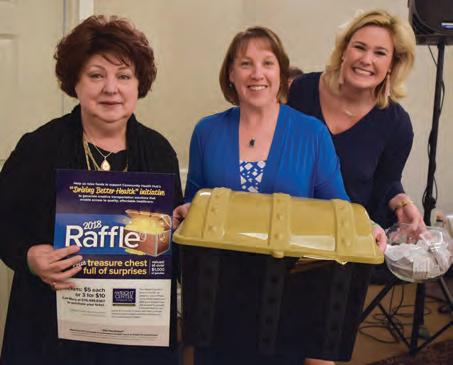
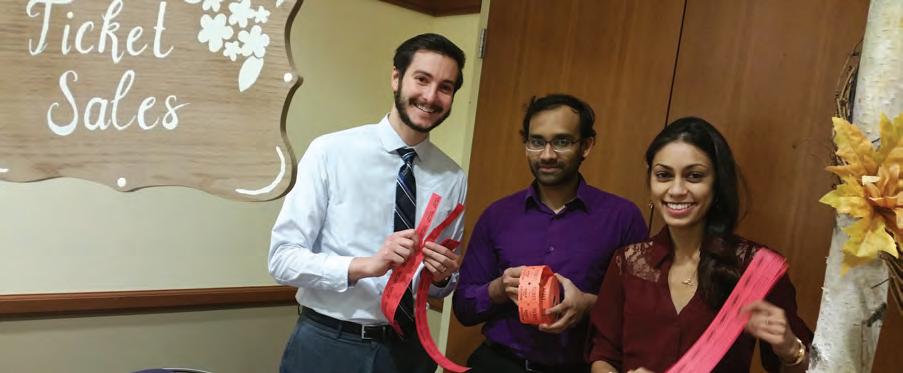
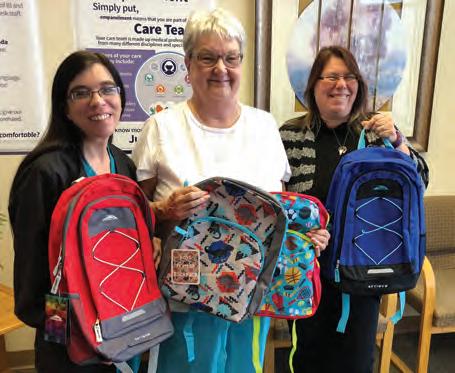

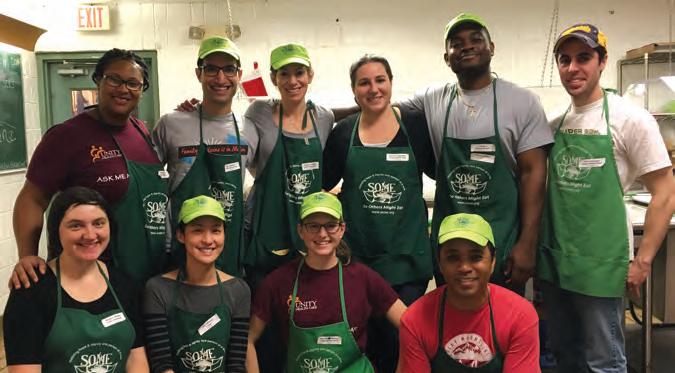
COMMUNITY
20
The Wright Center for Community Health’s Auxiliary is active all through the year and is led by longtime employee Gerri McAndrew. Last year, the auxiliary hosted a packed house for its annual Purse Bingo in May and later provided hundreds of backpacks filled with back-to-school supplies for community children. All funds raised through the year — through raffles, donations or events — are used to build the auxiliary’s “Angel Fund” to assist patients and community members. During the year, the auxiliary spearheads food banks, provides gas cards and leads special outreaches to make personal connections with patients and ease their hardships.
First Row From Left:
The annual Turkey Drive in November benefited 56 patients and families of our Ryan White Clinic. Monthly food pantries are also hosted at Wright Center for Community Health locations.
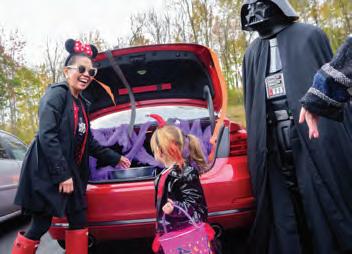
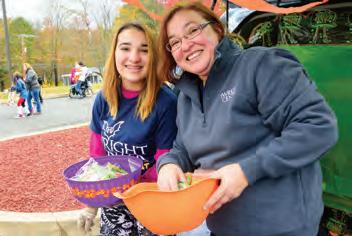
Our board members and staff are passionate about ensuring non-discriminatory, comprehensive healthcare services are available to all patients in our community. Lack of transportation continues to be a barrier to care, and through our annual “Driving Better Health” raffle, funds are raised to help patients get to their appointments and stay on the road to better health. This year, the grand prize winner took home a treasure chest full of surprises valued at over $1,000.
Second Row From Left:
Our National Family Medicine Residency team at Unity Health Care in Washington, DC always carves out time throughout the year to volunteer together. Here they are, making an impact at SOME (So Others Might Eat) by providing meals and clothing to homeless community members.
Regional residents and administrative staff served lunch to more than 100 community members at St. Vincent de Paul Kitchen in November. Through this annual tradition, many individuals served at the kitchen often recognize and chat with the resident physicians who care for them in Luzerne County.
Third Row From Left:
NAMI Scranton and Northeast Region, a nonprofit, grassroots, self-help support and advocacy organization, hosted its annual “Evening of Hope” in November. NAMI aims to raise awareness of prevalent mental/behavioral health issues and alleviate stigma surrounding mental health. Our team members assisted with pre-event planning and day-of-event support, and our psychiatry residents helped fundraise through raffle ticket sales.
In August, the Auxiliary hosted backpack giveaways at our clinics in Lackawanna and Luzerne counties, as well as at Neil Armstrong Elementary School in Scranton, Lakeland Elementary School, Mayfield Campus, and the Lawrence E. Young Funeral Home, Clarks Summit. Our volunteers filled over 200 backpacks with school supplies for children in Northeastern Pennsylvania.
Below:
In May, Caring Hearts, powered by The Wright Center for Community Health featured a panel discussion focused on effective navigation of the healthcare system and tips to stay heart-healthy. WVIA’s Paola Giangiacomo moderated the discussion. Panelists included Dr. Linda Thomas-Hemak, cardiologist Dr. Linda Barrasse, physician-faculty Dr. Jumee Barooah, cardiology fellow Dr. Sukrut Nanavaty and cardiologist Dr. Pranjal Boruah. Clarks Summit resident Bridget Feeney (right), a heart transplant recipient and author of the blog “Preppy Prosthetics,” was the keynote speaker.
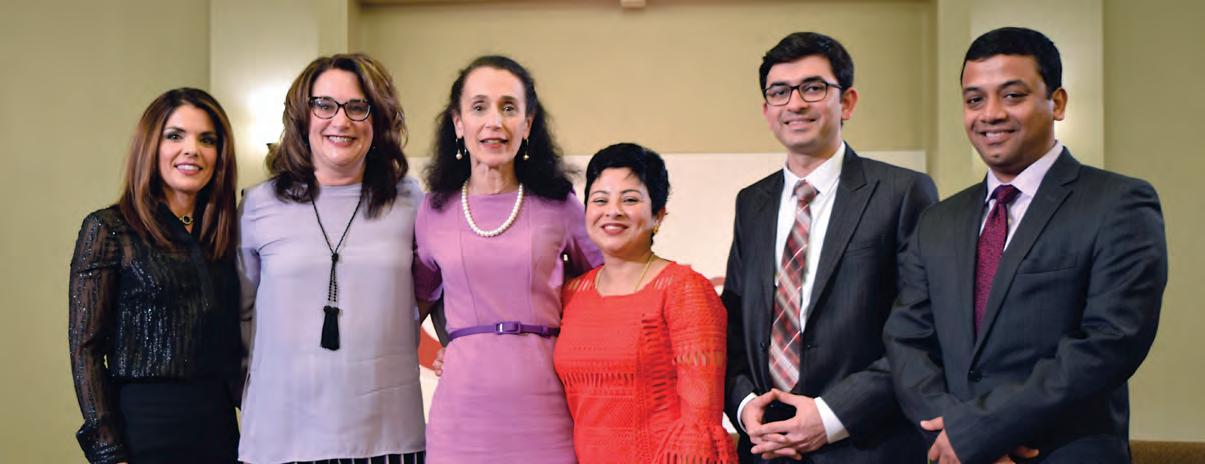
“When you volunteer, you experience a great sense of satisfaction in helping others. My parents’ actions inspired me to carry this important value throughout my life and to demonstrate the importance of volunteering to my own two daughters.”
— GERRI MCANDREW PRESIDENT, THE WRIGHT CENTER FOR COMMUNITY HEALTH AUXILIARY

21
A “Fall into Health” Fair and “Trunk and Treat” were held in October, featuring pumpkin decorating, face painting, yoga, raffles, an obstacle course, health/wellness screenings and a blood drive. Hundreds of children attended.
STAKEHOLDERS
As a community-owned and governed non-profit asset, we are accountable to all within the regions we serve. Our organizational evolution and active pursuit of community collaboration is based on Elinor Ostrom’s Nobel Prize-winning theory of Common Pool Resource Management and the belief that healthcare and workforce development can be stewarded for sustainable benefit to all.
Evolving Governance to Effectively Represent the Individuals and Communities Served
The Wright Center for Community Health and The Wright Center for Graduate Medical Education are independently governed, non-profit entities led by engaged and diverse board members committed to effective organizational oversight.
The Wright Center for Community Health Board is led by a patient majority to ensure that the authentic voice of the individuals served is always at the forefront. Additionally, community advocates, representatives from educational institutions and volunteers — who remain passionate about patient engagement and advocacy, affordable and quality care, patient-centered services and a healthier community — round out membership on this board.
The Wright Center for Graduate Medical Education Board members are passionate about elevating the educational and clinical learning experiences for medical residents and interprofessional learners throughout Northeastern Pennsylvania and across the country. This board comprises Wright Center graduates, physician-faculty, stakeholders from educational institutions, leadership from FQHCs and community advocates focused on elevating the GME experience to cultivate physicians who are acutely focused on the Quadruple Aim — better health outcomes, enhanced care experience for patients, reduced cost of care and joy in practice.
FRANCIS STEVENS, Board Member,
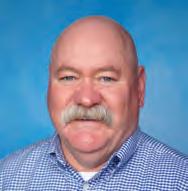
The Wright Center for Community Health
For years, Francis Stevens bravely served his community as a Scranton firefighter. A serious injury eventually put an end to his career. However, his devotion to helping others never wavered. Today, Stevens gives back through his volunteer work on behalf of several organizations, including the American Red Cross and the United Way of Lackawanna and Wayne Counties. Stevens is a longtime patient of President and CEO Dr. Linda Thomas-Hemak. By the time she convinced him to join the board, he was already a regular visitor to our Wright Center for Community Health Mid Valley Practice.
“I love that everyone gets the same treatment at the clinics, regardless of where they are in life,” Stevens said. “And Dr. Thomas-Hemak just has a vision for the area ... she enjoys treating so many different kinds of patients and has a real feel for what the needs of the community are.”
So far, Stevens’ experience on the board has been a wonderfully immersive education on the consortium’s unique approach to community health.
“It’s a good time to be involved, considering how it’s progressed in the last two years, with the FQLA pursuit and some of the other initiatives,” he said.
“Everyone on the board brings their own piece of the pie to the mission. And the staff is wonderful. They want us to give our opinions; they don’t want a board that just says yes to everything. And it’s never, ‘Look what I did.’ It’s, ‘Look what we did.’”
22
Demonstrating Financial Strength and Regional Impact
Our organization has stewarded federal resources into the Northeastern Pennsylvania economy through workforce production, job opportunities and physician retention for more than 40 years. The Wright Center for Graduate Medical Education received revenues from federal grants; hospital affiliations (residency and fellowship agreements) and reimbursements; IRB and research fees; and interest and dividends. The Wright Center for Community Health received supplies and revenues from patient services, grant support, 340B drug pricing and various contributions.
GRANTS AWARDED
Teaching Health Center Graduate Medical Education (THCGME) Health Resources and Services
Administration (HRSA)
Travel Grant
American College of Physicians; Rockefeller Philanthropy Advisors
Opioid Use Disorder Center of Excellence PA Department of Human Services
Early Intervention Services Program HRSA Ryan White Part C
Dental Discretionary Grant Moses Taylor Foundation
PA Coordinated MAT (PacMAT) Program PA Department of Health and Human Services
Our organization’s impact on the economy of Northeastern Pennsylvania, as well as the impact on the regions served by our four FQHC partnering sites engaged as learning environments for our National Family Medicine Residency (NFMR), goes far beyond payroll and purchasing. When our organization purchases goods from local suppliers and bolsters partnerships for services like consulting and construction, those businesses in turn buy some of what they need from other local companies. Similarly, employees (and the employees of partners and suppliers) spend part of their take-home pay locally for housing, utilities, food, child care, entertainment and other routine household needs.
Naloxone Administration Training Grant Moses Taylor Foundation
Ryan White Part B Subaward United Way of Wyoming Valley
Vaccine Initiative AllOne Foundation and Charities
Opioid Use Disorder (OUD) Supplemental Award HRSA Primary Care Training and Enhancement
Six Building Blocks Team Approach to Improve Opioid Management in Primary Care Agency for Healthcare Research and Quality
Strategic Initiative Mini-Grant, Preventing Senior Isolation Moses Taylor Foundation
Strategic Initiative Mini-Grant, School-Based Health Moses Taylor Foundation
Distance Learning and Telemedicine United States Department of Agriculture
Healthy Maternal Opioid Medical Supports (Healthy MOMS)
Pregnancy /Recovery Program PA Department of Drug and Alcohol; AllOne Foundation and Charities
MinibarRx for Scranton Practice Margaret Briggs Foundation
23
$
Combined net
Combined
$48.4 m Value infused into the regional economy 675 Jobs supported annually $ 14.3 m Value infused into the regional economies of Tucson, Arizona; New Richmond, Ohio; Auburn, Washington; and Washington, DC $ 39.8 m Labor income — an increase of 23% vs. 2017 $81.8m Monetary output — an increase of 18% vs. 2017 $ 11.8 m Labor income IMPACT ON THE NORTHEASTERN PENNSYLVANIA ECONOMY1: IMPACT ON THE FOUR COMMUNITIES SERVED THROUGH OUR NFMR1: 1 Data calculated by The Institute for Public Policy and Economic Development. Includes direct, indirect and induced effects. 64 % Salaries and benefits as a % of combined total operating revenue Data for
Calendar Year
—
Data for 2017-18 Fiscal Year (July
— June 30, 2018) Data for 2017-18 Fiscal Year
41.6m
operating revenue $ 13.9 m
net assets
2018
(January 1, 2018
December 30, 2018)
1, 2017
(July 1, 2017 — June 30, 2018)
ON THE HORIZON
In 2019, we will welcome 63 learners into our programs, maintaining our status as the largest Health Resources and Services Administration (HRSA) funded Teaching Health Center Graduate Medical Education (THCGME) consortium in the United States. The THCGME program continues to deliver the type of compassionate, high-quality physicians the American public desires and needs, while legislation in support of the concept remains commendably bipartisan. In 2019, our team members, board and residents, along with partners from the American Association of Teaching Health Centers (AATHC), will continue advocacy efforts for sustainable funding and expansion of the THCGME program. Fifty-seven physicians will graduate from our programs in 2019, with each one going on to impact thousands of patients and families throughout their respective careers.
The stage is now set for our expanded delivery of comprehensive, high-quality, accessible healthcare services for children and adults in our newly established, integrated clinical, learning and administrative complex in South Scranton, Pennsylvania. Currently under construction and set to open in 2019, this administrative-clinical-educational hub will serve as a Patient-Centered Medical Home within Northeastern Pennsylvania. It will house expanded primary care, behavioral health, oral health and infectious disease teams, as well as our family medicine and internal medicine residents, interprofessional students and administrative staff. Vice President of Information Technology John Janosky (left) and Project Manager Michael Brown (right) are playing integral roles in the 501 South Washington Avenue project.
We continue to advocate for integrated primary care, behavioral health and addiction/recovery services, and responsive Health Information Technology infrastructures. Our team sees great potential in the Opioid Use Disorder Center of Excellence and Healthy MOMS initiatives, and we will continue to expand and develop our workforce to address the regional and national opioid epidemic.
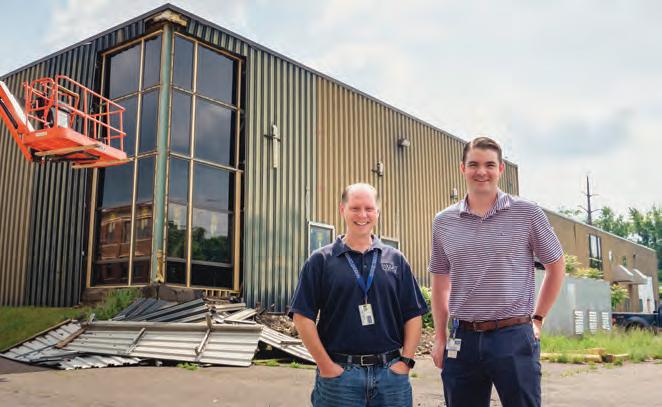
We look forward to the promise of 2019 and beyond as we await HRSA’s decision on our Federally Qualified Health Center Look-Alike (FQLA) status. In the interim, we continue to pursue our 10-year target set in 2017 — to be recognized by the president of the United States as THE Health and Human Services (HHS) gold standard for community-based primary healthcare and workforce development by June 30, 2027.
This project is supported by the Health Resources and Services Administration (HRSA) of the U.S. Department of Health and Human Services (HHS) as part of awards totaling $17,038,990 with 63% percent financed with non-governmental sources. The contents are those of the author(s) and do not necessarily represent the official views of, nor an endorsement, by HRSA, HHS, or the U.S. Government. For more information, please visit HRSA.gov. This information or content and conclusions are those of the author and should not be construed as the official position or policy of, nor should any endorsements be inferred by HRSA, HHS or the U.S. Government. The Wright Center for Community Health and its affiliated entity, The Wright Center for Graduate Medical Education does not discriminate on the basis of race, color, national origin, sex, age or disability in its health programs and activities.
The Wright Center for Community Health plans to assume clinical operations of an existing family medicine practice in Luzerne County in summer 2019. Our expanded footprint in the Wyoming Valley market will not only provide enhanced learning experiences for our residents, but also will provide increased access to high-quality, accessible primary health services for patients and families.
24
Thank You
We humbly acknowledge: our board members (listed below) who unselfishly dedicate their time and expertise; our residents and fellows who entrust us with their respective educations; the patients and families who place their confidence in our care teams; and our employees and staff who deliver our mission and vision every day.
In fall 2018, The Wright Center Medical Group evolved into The Wright Center for Community Health, and our physicians and care team members transitioned from its governing board. This shift made way for patients and community members to join the governance and ensure a patient-led majority in alignment with Federally Qualified Health Center Look-Alike requirements. The Wright Center for Community Health Board gives voice to individuals, families and communities, and provides meaningful contributions and guidance to ensure we deliver care to the nation’s most vulnerable and underserved patients and families in alignment with the mission of HRSA and the Bureau of Primary Health Care.
The Wright Center Medical Group
Dr. Linda Thomas-Hemak, President Dr. Jumee Barooah, Vice President Dr. Jignesh Sheth, Secretary Dr. Timothy Burke, Treasurer
Dr. Rajiv Bansal
Alycia Coar
Dr. William Dempsey Dr. Allyson Favuzza Dr. Bojana Milekic Dr. Julio Ramos
The Wright Center for Community Health
Dr. Linda Thomas-Hemak, CEO, Ex-Officio
Carlon Preate, Chair
Gerard Geoffroy, Vice Chair
Mary Marrara, Secretary
John Kearney, Treasurer
Sandra Browder
Mary Ann Chindemi
Shane Cobert-Fuller
Jody Cordaro
Patricia Desouza
Susan Duckworth
Dr. LeeAnn Eschbach
Joseph Ferrario
James Gavin
Kim Heritscko
Luci Kura
Lewis Marcus
Jeffrey Metz
Kenneth Powell
Melissa Simrell
Hon. Edward Staback
Francis Stevens
Dr. William Waters
The Wright Center for
Graduate Medical Education
Dr. Linda Thomas-Hemak, President Joseph Ferrario, Chair Dr. Mary Sewatsky, Vice Chair James Gavin, Secretary John Kearney, Treasurer Dr. Harold Baillie Dr. Douglas Coslett Dr. Vithal Dhaduk Gerard Geoffroy Sr. Mary Alice Jacquinot Scott Jenkins Mary Marrara Carlon Preate
Dr. Julio Ramos Dr. Lia Richards-Palmiter Dr. Jignesh Sheth
Affinitas Health Innovations, Inc.
Dr. Linda Thomas-Hemak, President Carlon Preate, Vice President Gerard Geoffroy, Secretary John Kearney, Treasurer Joseph Ferrario James Gavin Mary Marrara Dr. Jignesh Sheth
The Wright Center Alliance
Dr. Linda Thomas-Hemak, President/CEO Carlon Preate, Chair
Gerard Geoffroy, Vice Chair John Kearney, Secretary Joseph Ferrario, Treasurer Susan Duckworth James Gavin Mary Marrara Jeffrey Metz
Judith Price, Esq. Dr. Jignesh Sheth Hon. Edward Staback
Community Health Hub
Dr. Jignesh Sheth, Executive Director
Dr. Linda Thomas-Hemak, Chair
Gerard Geoffroy, Vice Chair Dr. William Waters, Secretary Mary Marrara, Treasurer Bryan Adkins James Allen Carol Chaykosky Mary Ann Chindemi Jody Cordaro
Bette Cox Saxton
Patricia Desouza Dr. LeeAnn Eschbach Francis Koza
Lawrence Moran, Esq. Kenneth Powell Cara Sherman Melissa Simrell Francis Stevens Larry West
Patient Engagement Council
Dr. Linda Thomas-Hemak, President/CEO, Co-Executive Director
Gerard Geoffroy, Chair, Co-Executive Director Mary Marrara, Vice Chair
Kellen Kraky, Secretary Dr. LeeAnn Eschbach, Treasurer
John Baldino
David Bieri
Gail Cicerini
Charles Hemak
Lorraine Lupini
Sarah Quinlin-Sheridan Carol Rubel Tammy Saunders Elaine Shepard Ellen Walko Jack Walsh
THE LIST ABOVE INCLUDES ALL INDIVIDUALS WHO SERVED ON A BOARD AT ANY TIME DURING THE 2018 CALENDAR YEAR. FOR A CURRENT LIST OF BOARD MEMBERS, VISIT THEWRIGHTCENTER.ORG/OUR-BOARD-MEMBERS
The
MISSION 570.343.2383 | TheWrightCenter.org
mission of The Wright Center for Community Health and its affiliated entity, The Wright Center for Graduate Medical Education, is to improve the health and welfare of our community through inclusive and responsive health services and the sustainable renewal of an inspired, competent workforce that is privileged to serve.
















 OF MEDICAL EDUCATION
OF MEDICAL EDUCATION




















 are provided to individuals living with HIV/ AIDS in a seven-county area within Northeastern Pennsylvania at The Wright Center for Community Health Ryan White Clinic in Scranton. Operational resources are provided through a HRSA Ryan White Part C grant, as well as the Northeast Regional HIV Planning Coalition and United Way of Wyoming Valley.
Ryan
are provided to individuals living with HIV/ AIDS in a seven-county area within Northeastern Pennsylvania at The Wright Center for Community Health Ryan White Clinic in Scranton. Operational resources are provided through a HRSA Ryan White Part C grant, as well as the Northeast Regional HIV Planning Coalition and United Way of Wyoming Valley.
Ryan



















